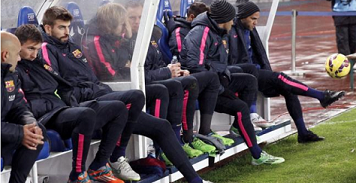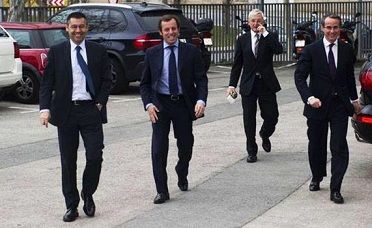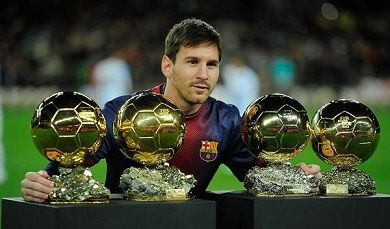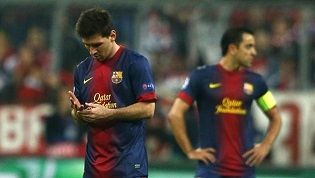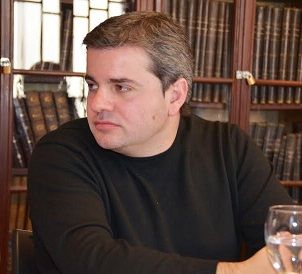
Con los años, muchos han escrito libros sobre el FC Barcelona, su historia, sus directivos y jugadores. Sin embargo, no muchos han escrito enciclopedias sobre los jugadores del Barça, entrenadores, preparadores físicos, y presidentes a lo largo de la historia del club. Ángel Iturriaga tiene la fama de hacerlo y el miembro de la Penya, Ibrahim Ayyub tuvo la fortuna de entrevistar al señor Iturriaga para responder a algunas preguntas sobre la historia y el futuro del Barça.
Ángel Iturriaga Barco es un talentoso escritor e historiador, y también un fan del Barça. Su primera publicación Diccionario de jugadores del FC Barcelona, fue en el 2010 y luego publicó Diccionario de técnicos y directivos del FC Barcelona en 2011. 2013 fue un año de mucho trabajo para él pues publicó Diccionario de jugadores de la selección españolay colaboró con David Valero Carreras, en Paulino: el primer crac de la història del Barça, la autobiografía sobre el ex jugador del Barça, Paulino Alcántara. También me ha ayudado con su retroalimentacion en la serie de la Penya "A Look Back At Barça Legends". Me siento honrado que el señor Iturriaga fue suficientemente generoso en tomar tiempo para esta entrevista.
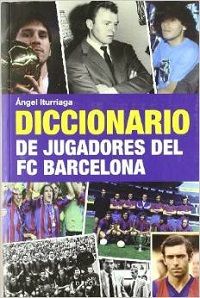
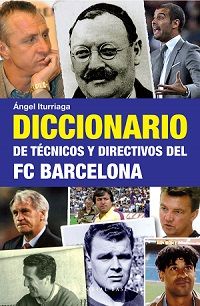
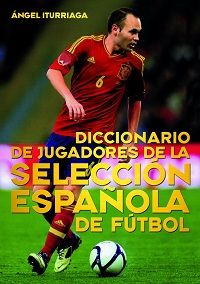
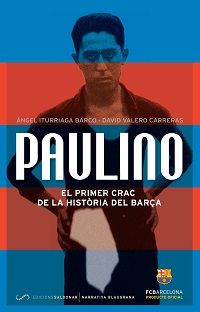
¿Qué lo inspiró para convertirse en Escritor de deportes / Historiador?
Desde muy niño he tenido pasión por la historia, especialmente por la contemporánea. Siempre sentí la necesidad de conocer lo que habían hecho las generaciones anteriores a la mía, algo básico para entender el mundo en que vivimos. El hecho de publicar mis investigaciones fue algo derivado de lo mismo, intentar compartir el conocimiento con quien pudiera tener las mismas inquietudes que yo.
¿Cuánto tiempo e investigación se necesita para escribir estos Diccionarios?
Los diccionarios han sido procesos lentos, que he ido realizando mientras hacía otras investigaciones. Durante mucho tiempo estuve acumulando datos sobre jugadores, técnicos y directivos del FC Barcelona. Cuando logré un volumen importante de información y datos que aportaban novedades a la historia del club, me plantee publicar mis dos primeros diccionarios.
No es ningún secreto que le apasiona el FC Barcelona, de donde ha salido eso?
Realmente, el origen proviene de mi padre, un apasionado del Barça que durante un tiempo vivió en la capital catalana. Siempre me ha hablado del Barça de Kubala, del de Cruyff, de la travesía del desierto… Todo ello despertó en mi desde niño curiosidad y simpatía por el club.
¿Qué equipo del FC Barcelona cree usted que fue el mejor de todos ellos?
Creo que es imposible comparar épocas porque no tenemos los datos suficientes. Creo que hay que reivindicar el magnífico Barça de los años veinte y en de los cincuenta. Sin ellos, no se hubiera logrado construir el enorme club que hoy conocemos. Sin embargo, por su dimensión futbolística, creo que hay que quedarse con el Barça de Pep Guardiola, sublimación de la idea de juego que ha imperado en el club desde los setenta, la misma que mejoró Cruyff como técnico.
¿Quiénes son su entrenador y jugador favorito del FC Barcelona?
Mi técnico favorite es Pep Guardiola. Mi jugador, obviamente, Leo Messi, pero me gustaría recordar a un mito sin el que nada de lo que posteriormente ha pasado hubiera sido posible, Paulino Alcántara.
¿De dónde viene el lema del FC Barcelona “Mes que un club” ?
Tradicionalmente se atribuye al discurso de Lluís de Carreras cuando tomó posesión de la presidencia del club en 1968. Era un sentimiento que existía entre muchos culés pero que el señor de Carreras fue el primero en manifestar públicamente.
¿Sigue siendo hoy verdadero?
Sin duda, el Barça es una institución que va mucho más allá de lo deportivo para tener una gran trascendencia tanto en el ámbito social como político en Cataluña. Esto es un hecho desde los inicios de la historia del club, especialmente desde que Joan Gamper se hizo con la presidencia.
¿Parece que del FC Barcelona tiene dos estilos de juego, Cruyff y todos los demás? ¿Qué hace el entrenamiento de este equipo difícil?
Desde los setenta, el FC Barcelona solo gana títulos importantes con un estilo, el que impusieron gente como Laureano Ruiz, Buckingham o Michels y que posteriormente mejoraron Cruyff, Rijkaard o Guardiola. Cuando se han alejado de ese modelo, el equipo ha naufragado, tal y como podemos ver hoy en día. Los niños de La Masía se han formado para desarrollar un estilo de juego que hoy en día no practican ni el primer ni el segundo equipo.
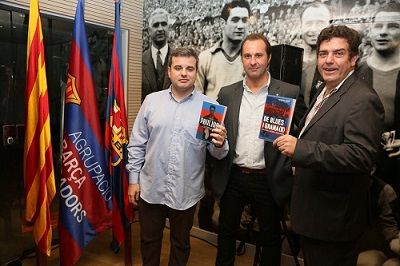
Con todos los legendarios jugadores del FC Barcelona para elegir, ¿por qué, junto con David Valero Carreras, eligieron a Paulino Alcántara?
Paulino es la primera estrella de la historia del Club. Cuando David y yo nos lanzamos a hacer el libro, era el máximo goleador de la historia barcelonista, hoy solo superado por Leo Messi. Su trascendencia fue más allá de lo futbolístico, ya que apareció en una época en la que el Barça estaba al borde de la desaparición. Él consiguió que el fútbol se convirtiera en un deporte de masas en Barcelona y el incremento de socios que se derivó de ello hizo que el club pudiera sobrevivir.
¿Cuándo comenzó la rivalidad con el Real Madrid?
En los años veinte ya se veía en el Real Madrid un rival fuerte. Sin embargo, hasta los cincuenta el Madrid era el segundo equipo de la capital de ESpaña tras el Atlético de Madrid. Tras el fichaje de Kubala por el Barça, que fue querido por el Madrid y tras el caso Di Stéfano comenzaron las hostilidades tal cual las conocemos hoy en día.
¿Qué salió mal con la firma de Di Stefano?
Es algo muy largo de explicar, un caso muy alambicado con muchas aristas. En última instancia, el Barça, que tenía el derecho de contar con el jugador, tuvo que renunciar al jugador tras algunas amenazadas llegadas desde el régimen franquista al presidente azulgrana. Para desarrollar este tema recomiendo la lectura de El Caso Di Stéfano, de Xavier García Luque y Jordi Finestres, así como Miedo y asco en la Liga de Sid Lowe.
¿Qué tan grande fue el impacto del fichaje de Cruyff del Ajax?
Cruyff lo cambió todo a pesar de que solo dio un gran rendimiento en su primera temporada. Trajo modernidad, color, a la gris sociedad de los últimos años del franquismo. Logró ser el hombre clave para que el Barça ganara su primera Liga en una década y media. Su impacto fue absoluto, se llegó a escribir que el fichaje de Cruyff era un símbolo de la recuperación de la democracia para Cataluña.
¿Veremos alguna otra vez algo como el motín Hesperia?
Es muy difícil en esta época que jugadores con intereses tan diferentes se pongan de acuerdo en algo así. En fútbol se puede ver de todo pero creo que es casi imposible.
¿Está de acuerdo con aquellos que creen que el club está regresando de nuevo a los días de estilo de juego incierto tras el despido de Cruyff?
Ninguna duda sobre eso. Los dirigentes actuales tienen un gran resentimiento hacia Cruyff, Guardiola y todo lo que ambos representan. Le gustaría ganar con un modelo totalmente opuesto, si bien se demuestra que este club solo logra títulos cuando vuelve a la escuela holandesa.
¿Qué tan importante ha sido el papel de La Masia en la historia del FC Barcelona en el pasado, el presente, y el futuro después de la prohibición de transferencia?
Tiene una enorme trascendencia, La Masía ha sido una bendición. Realmente solo ha sido útil a partir de la llegada de Cruyff, cuando todos los equipos comenzaron a jugar de una determinada manera, con roles iguales en todas las categorías inferiores. La cantera ha sido el vivero del club, el orgullo de los culés. Desde la llegada de Rosell a la presidencia, se ha despedido a los grandes maestros de la misma: Capella, Benaiges, Alexanco, Amor, Òscar, Puig, lo que hace correr el riesgo de que se acabe con un modelo extraordinario.
¿Con el triunfo del Atlético de la Liga en la temporada pasada y Valencia bajo la propiedad de Peter Lim, es La Liga aún una liga de dos equipos?
Creo que no. El Atlético es sin duda un equipo que puede disputar de igual a igual a Barça y a Real Madrid. El proyecto del Valencia es igualmente interesante, si bien creo que tardará un par de años en terminar de cuajar.
¿La intensidad de la cobertura de los medios de comunicación y el sesgo de Barcelona y Madrid hacia sus equipos, y sus rivales, aumentaron en los últimos años o ha sido siempre de esta manera antes de la llegada de los medios electrónicos de comunicación?
Sin duda. Desde los cincuenta la cobertura mediática se ha ido incrementando, a medida que el fútbol se convertía en un deporte más mediático y seguían proliferando los medios. A partir de los setenta, ya eran decenas los medios que se acreditaban para cubrir un partido de uno de los grandes. Hoy en día son más de 200 los medios de todo el mundo los que cubren cada partido de los equipos de primer nivel.
¿El éxito de España durante su increíble racha ayudo a cerrar la brecha entre los españoles y los catalanes, sobre todo con los catalanes a favor de la independencia?
Creo que no. Hubo independentistas catalanes que pudieron alegrarse por ver a hombres como Xavi, Iniesta o Busquets ganando un Mundial, pero de ningún modo creo que tenga influencia en su visión política.
¿Habra próximos libros sobre jugadores o figuras del FC Barcelona?
Estoy haciendo una investigación de la historia politica y social del club a lo largo de la historia. Posiblemente haya una publicación en un futuro, pero no próximo, ya que el trabajo debe ser completado con una serie de entrevistas que sirvan para recuperar parte de la memoria del club.
¿Es usted miembro de una Penya?
No soy miembro aunque sí que he colaborado con algunas que tienen interés en temas que van más allá del mero partido semanal, como es el caso de la vuestra. Animaría a que las peñas se impliquen más en la vida social del club y en que tengan interés en conocer la historia del club, ya que para saber a dónde vamos, hay que saber de dónde venimos.
Bueno señor, espero que acepte nuestra oferta de hacerle miembro honorifico de la Penya Barcelonista de Miami.
Oh, un gran honor para mí !! Muchas gracias !!
Si usted está interesado en saber más sobre Ángel Iturriaga, usted puede seguirlo en twitter -https://twitter.com/anituarco. Él también tiene un blog dedicado a recordar el reciente fallecimiento de ex jugadores de fútbol - http://jugadoresfallecidosrip.blogspot.com.es/. Sus libros se pueden adquirir desde la página web de Amazon para los compradores españoles yestadounidenses.
